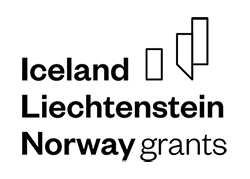The Patient hub is a project of the Ministry of Health of the Czech Republic, financed from the European Economic Area and Norway Grants for 2014–2021 from the Health programme. The present programming period puts great emphasis on enhancing the role of patients and patient organisations. The Ministry has worked with patient organisations on the concept of the hub since 2016.
ABOUT EEA AND NORWAY GRANTS
The project aims primarily to professionalise patient organisations as legitimate representatives of patients, to enable them to provide irreplaceable services for their members – patients – on a sustained basis, yielding initiatives and feedback directly from those who use medical care. Another objective is to enhance the provision of information to patients, increasing their legal awareness and motivation to actively care for their health. Last, but not least, the project helps increase medical literacy among the general public.
Key activities of the Patient hub include: operation of shared and community-based premises in Prague’s Vršovice neighbourhood, providing a comprehensive training programme, administration of an interactive web portal, and organisation of awareness events for the general public.
We opened the Patient hub premises on 18 November 2020. We hope you will like them and enjoy coming back and that the project will fulfil both your and our expectations.

The project was launched on 1 March 2020 and will carry on through to the end of 2023, when the Ministry will negotiate about its operation by the patient segment, which has been cooperating in its development since the beginning.
The main plan of the Patient hub is to educate and prepare patients and patient organisations for getting involved in decision-making processes in healthcare. Until not long ago, nobody inquired about a patient’s experience and viewpoint. Hence, it is more than necessary for patients to be able to actively influence these processes and to be an equal partner to other stakeholders in medicine: healthcare services providers, government institutions, health insurance funds, pharmaceutical companies, professional societies, and others.
Lichtenstein, Iceland, and Norway are not European Union Member States but have an associate status on the basis of the Agreement on the European Economic Area (EEA) and other agreements. Thanks to that, they have access to the single European market and also the right to protect their interests, meaning that they can take over to their legal systems specific parts of EU legislation. In exchange for this specific relationship to the EU, these countries are making a financial contribution to reducing economic and social differences in the European Economic Area, by means of grants: EEA Grants and Norway Grants. Currently, money from the grants is used by 15 Member States from Central, Eastern, and Southern Europe, the Czech Republic being one of them.

keen
drawers
Our cooperation with the EEA and Norway Grants has been excellent. It has run since 2004 when we joined the European Union and the European Economic Area. Since then, over one thousand interesting projects worth more than 6 billion crowns have been implemented in the Czech Republic thanks to the grants! Their focus has been diverse. From among the most recent, let us mention, for example, the project focused on research into the preparation of transplants in eye medicine, on the renovation of a church, or comic stories acquainting us with the everyday lives of people with mental handicaps. Currently, the Czech Republic is the fifth-largest recipient, after Poland, Romania, Hungary, and Bulgaria. In the present period, which will run through to 2024, projects worth approximately 5 billion crowns will be supported in the Czech Republic. They will focus primarily on research, environmental protection, cultural heritage and cooperation in culture, public health, education, and cooperation in the justice system. For more information, see www.eeagrants.cz.